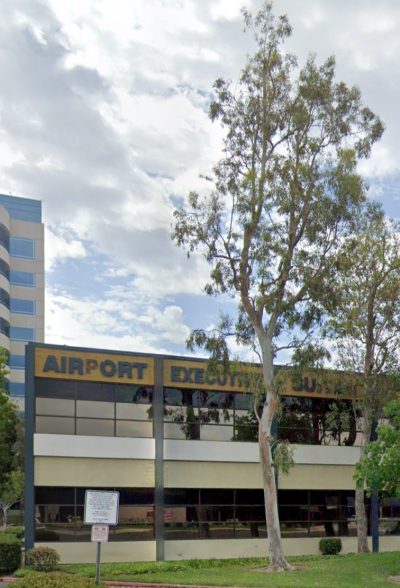Why Any Taxpayer Making An Offshore Account Disclosure Must Have Legal Advice
If you know that you have an undisclosed foreign account or asset, you will most likely want to take advantage of the Streamlined Domestic Offshore Procedures, Streamlined Foreign Offshore Procedures, or less commonly, a non-program disclosure arguing reasonable cause as a defense to all penalties.
While it might be possible to make voluntary disclosure on your own, or solely with the assistance of a CPA or an uncredentialed tax return preparer, choosing non-attorneys leaves too much to chance and opens the door to some very adverse consequences.
For example, work with a non-attorney is not protected by the robust attorney-client privilege, with the result that virtually anything stated to a non-attorney would be at risk of ultimate discovery by the IRS. This is an extraordinarily risky choice if you have any concern about potential criminal penalties.
If you even think you might have failed to report foreign accounts or assets, you should consult with experienced FBAR tax attorney and FATCA tax attorney Andrew L. Jones first.
The IRS’ Foreign Account Amnesty Programs Are Filled With Traps For The Inexperienced Taxpayer Or Non-Attorney Provider
Voluntary disclosure, as the IRS emphasizes repeatedly, is based on full, complete and timely compliance with all program requirements, and in the case of the Streamlined Procedures options, requires a detailed Certification of Non-Willfulness which tell s”the whole story including favorable and unfavorable facts [including the taxpayer’s] personal background, financial background, and anything else…relevant to [the] failure to report all income, pay all tax, and submit all required information returns, including FBARs.” The IRS further requires Streamlined participants “explain the source of funds in all of your foreign financial accounts/assets,” “contacts with the account/asset including withdrawals, deposits, and investment/
management decisions” and where the taxpayer relied on a professional advisor, “the name, address, and telephone number of the advisor and a summary of the advice.”
Every document and detail sent to the IRS must be perfect the first time – not later, after revisions. Many taxpayers approach the program with the hopes that their genuine good intentions will be honored, and that the IRS will respect their efforts to comply, however imperfectly. In normal IRS tax procedure, this hope might be realistic. Unofrtunately, the taxpayer’s usual expectations of reasonable dealing with the IRS do not apply in the case of foreign account disclosures. Here are a couple reasons why:
1) The Streamlined Procedures are not programs grounded in the United States tax code,
2) The IRS has issued very little written guidance about the operation of the program or its standards of judgment, and,
3) The case law (regarding negligence vs. willfulness, the critical distinction for participation in the Streamlined Procedures) is in constant flux.
In short, IRS voluntary disclosure is not a process for the inexperienced practitioner – the stakes are simply too high. Only tax attorneys who maintain a high workload in this ultra-narrow niche and monitor the relevant developments in the programs and standards to qualify for them, can ensure that you successfully complete the program and gain the protections offered.
An Incorrect IRS Voluntary Disclosure Through The Streamlined Procedures Can Spell Disaster
Virtually all taxpayers make IRS voluntary disclosures with an intent to complete the process successfully and are willing to pay significant legal fees and a significant fine in return for the assurance that their entire problem is resolved.
But what if the IRS judges that the taxpayer’s submission is inadequate (not enough information) or, when enough information is provided, that the taxpayer objectively does not qualify? Or worst of all, what if the taxpayer waits too long and doesn’t file before the IRS learns his name?
If You Can’t (Or Don’t) Make A Voluntary Disclosure To The IRS, You Are Exposed To All Possible Tax And FBAR Penalties
FBAR Penalties
Willful Failure to File the FBAR
If the IRS determines that a taxpayer willfully failed to file a Foreign Bank Account Report, the IRS may impose a penalty equal to the greater of $100,000 or 50% of the high balance of the account in the year of non-compliance. Worse, the IRS has indicated that it may impose this penalty cumulatively for up to six years, and in the recent Zwerner case, secured a jury verdict imposing the 50% penalty for three years cumulative (the US Department of Justice ultimately settled in June 2014 for two years’ 50% willfulness penalties, the rough equivalent of the entire seven-figure account value).
What determines a willful failure to file? To hear the IRS tell it, as little as failing to check a critical box on Schedule B in which the taxpayer definitively states whether or not he/she owns or controls a foreign account. The true reality of willfulness is far less black-and-white, insofar as willfulness requires an examination of the taxpayer’s subjective state of mind regarding knowledge of the obligation to file the FBAR.
Regardless of whose interpretation ultimately prevails in a court of law, it is fair to say that even being in that situation of having to fight the IRS over just one 50% penalty is an experience to be avoided if at all possible. And IRS voluntary disclosure, to put it simply, is one way to avoid that outcome – and in fact, usually the best way.
Negligent Failure To File The FBAR
One (critical) step below the willful failure to file the FBAR is the negligent failure to file the FBAR. Even where the likelihood of a willfulness penalty is remote, the possibility of one or more $10,000 FBAR negligence penalties is still a major financial consideration in an FBAR tax attorney’s client analysis.
Having just explained why the FBAR willfulness penalty means that a voluntary disclosure should be seriously considered, there are a large number of clients whose actions are utterly non-culpable (simple translation: not guilty or blameworthy in nature). These individuals may have violated the FBAR requirements but – for a universe of possible reasons – can show that their actions were not willful and that, instead, they simply failed to act as a reasonable taxpayer would in attempting to comply with his/her reporting obligations. This failure to act as a reasonable taxpayer is the essence of mere negligence, and would, if detected by an examiner, lead to the imposition of up to $10,000 per instance of non-compliance.
As should already be obvious, then, successfully convincing the IRS that one’s FBAR (or similar foreign account/asset reporting noncompliance) was non-willful in nature offers enormous financial savings relative to a willfulness penalty. Only an attorney well-versed in gathering facts relevant to this state-of-mind (negligence vs. willfulness) determination and applying those facts to the relevant law, is qualified to advise individuals with such issues.
Civil And FBAR Criminal Prosecution
The IRS’ determination in whether it will refer a case to the Department of Justice for prosecution as a tax crime often looks to what prosecutors and tax practitioners call “badges of fraud.”
The concept of badges is applied to all sorts of tax matters, not just offshore accounts. In analyzing whether to make an IRS voluntary disclosure (or, less commonly, make a non-program disclosure), the FBAR tax attorney must put himself in the shoes of an IRS examiner.
In an FBAR violation case, the IRS will look for indications of a willful attempt to evade taxes on the foreign account:
Was the money moved around from bank to bank, one step ahead of enforcement actions?
Was the money earned in the US and deposited directly offshore without ever being reported on a US tax return?
Did the taxpayer withdraw the funds in small cash amounts and bring those amounts back to the US – or perhaps did the taxpayer establish a debit card and supported themselves financially from the foreign funds via use of the foreign debit card in the US?
Equally important are details that point to a lack of willful intent, including:
- Inheritances that were deposited and never touched
- Accounts that were established when the taxpayer was a child or young adult in his/her country of origin land, before emigrating to the US and attaining a work visa, permanent residency or citizenship
- Small amounts in the account and very little earnings (from the account) that actually ‘evaded’ US taxes
When these kind of positive factors can be convincingly documented, the taxpayer should strongly consider whether a non-program disclosure (in conjunction with a convincing argument of reasonable cause) could yield a superior penalty outcome than the 5%-of-noncompliant-assets penalty of the Streamlined Domestic Offshore Procedures.
As should be obvious now, only an experienced and well-versed tax attorney can gather a complete picture of the client’s noncompliance, apply those facts to the current law, and tell a convincing story in the IRS’ own language.
Working With Your FBAR Tax Attorney
A taxpayer planning on making a voluntary disclosure of FBAR and/or related foreign account/asset noncompliance can expect his or her attorney to closely examine his facts, the options for addressing the noncompliance, and the benefits and detriments to each of the various options.
In many taxpayers’ cases, there is no single “right” solution. Instead, the attorney outlines all the options available, the discusses the client’s priorities – for example, do they prize privacy above all? Are they completely risk-adverse, or risk-tolerant? Do they have financial limitations in terms of how much they can immediately pay in penalties, or do they have a strong opinion that a penalty-paying outcome is unjust?
Whatever your priorities, one piece of advice always applies: if you fear that you have exposure to penalties for foreign account noncompliance, you should immediately consult with an attorney who specializes in this niche. If the attorney determines that you are indeed a non-filer, moving quickly to voluntarily disclose the account(s) to the IRS is often the best course. The attorney will work for you and for your best interests and aid you in making this difficult and time-sensitive decision.
Living with the knowledge or fear that the IRS may come inquiring about a foreign account is no way to live. The sleepless nights and fear are not worth continuing to ignore something that is rapidly becoming inevitable. Your offshore account, secret or no, will (thanks to FATCA and other IRS enforcement strategies) soon be known to the US.
For US individuals with an undisclosed foreign account, now is the time for action. Call (415) 745-1924 to speak immediately with experienced IRS voluntary disclosure tax attorney Andrew L. Jones. You will receive an immediate, free, thorough, and completely confidential consultation. We are available by phone nationwide or in person at your choice of 6 different offices throughout California (San Francisco, Palo Alto, Walnut Creek, Los Angeles, Irvine and San Diego). We answer your calls from 8 am-9 pm Pacific, 7 days a week. After hours, please leave a message or visit our contact form and we will reply the next morning.







